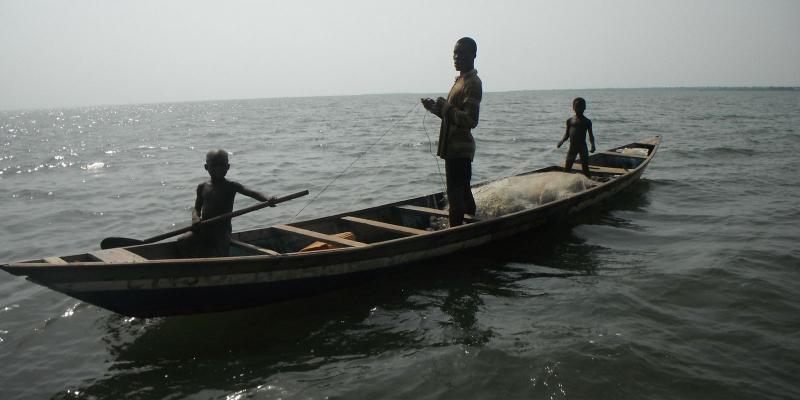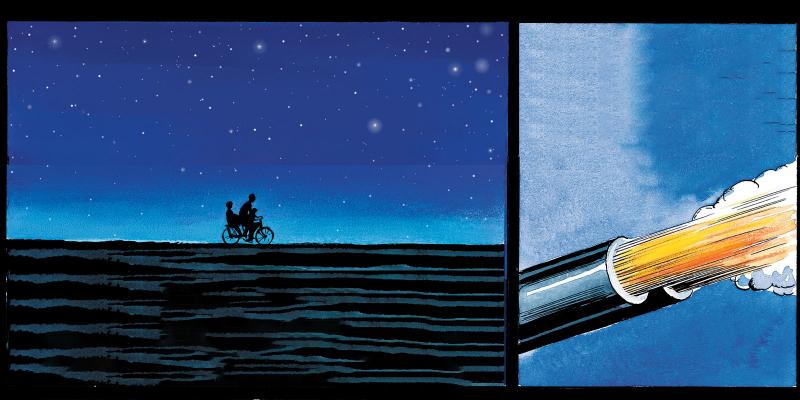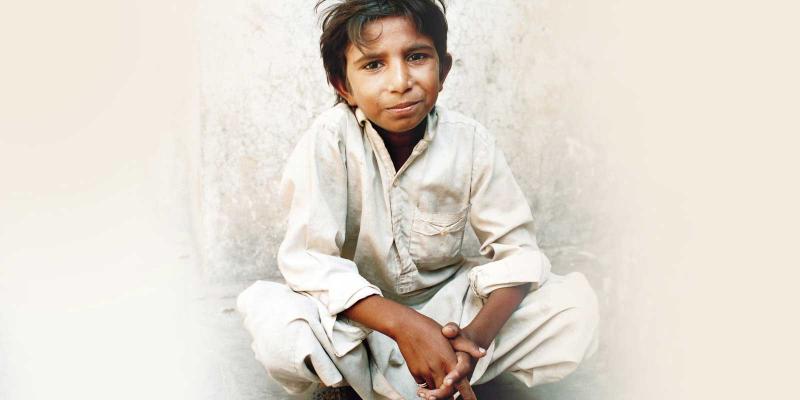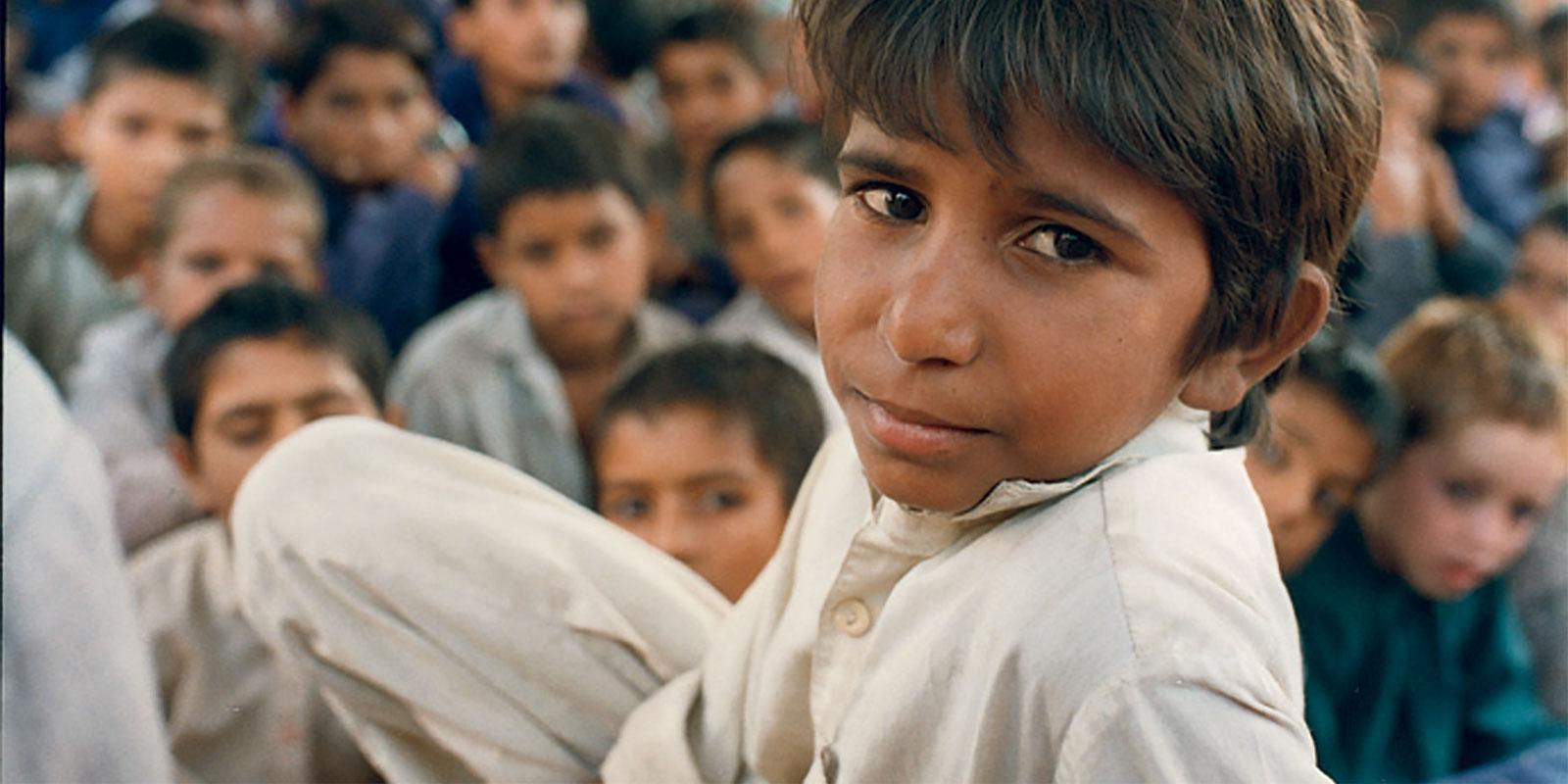
Iqbal is about five years old when he has his first working day in the carpet factory. Later, when his mother Anayat needs money for an operation, she takes out a loan from a carpet factory owner called Ghullah.
Now Iqbal is a debt slave and Ghullah is in charge of his life. The loan, or ‘peshgi’, is in Iqbal’s name. That means that Iqbal owes Ghullah the 5000 rupees (ca 600 US dollars) that his mother’s operation cost. When Iqbal gets home from the carpet factory in the evenings, he collapses into bed and falls asleep. Sometimes Ghullah wakes him around midnight. “We have a carpet delivery that has to be finished. Come on, get up.”

The peshgi debt means that Iqbal has to go with Ghullah, who drags a sleepy Iqbal through the narrow streets to the carpet factory. If Iqbal falls asleep at work, he is woken up by a blow from the carpet fork.
Iqbal runs away
One day, a little boy in the carpet factory has a high fever. Ghullah, the owner, ties the boy’s feet together and hangs him upside down from the ceiling fan. “I’m the one who decides when you work,” roars Ghullah.In that instant, Iqbal decides he’s had enough. He starts to run away from work as often as he can. Iqbal and his friends take the chance to run away when Ghullah isn’t there. They play all day without worrying about what awaits them.
The next morning, Ghullah comes to their homes to get them. He’s furious, and he beats the boys with a carpet fork or whatever is within reach. Then he chains them up. Sometimes two days pass before he releases them again.

Finally free!
Early one morning in October 1992, Iqbal runs away from work. He jumps onto the back of a tractor, where many adults and children are already sitting. One hour later, they arrive at a meeting of the Bonded Labour Liberation Front, BLLF.Iqbal listens with interest when Ehsan talks about the law against debt slavery. The problem in Pakistan is that people don’t obey the law, and the police and courts often help factory owners rather than poor people. Ehsan asks Iqbal to tell the other children about his experiences. At first Iqbal doesn’t dare, but then he steps up to the microphone.
Ghullah refuses to let Iqbal leave the carpet factory. But Ehsan doesn’t forget the little boy, and he asks some of his colleagues to find out more and help Iqbal to freedom.

Iqbal is very happy to be able to start attending ‘Our own school’, as the BLLF school for former debt slaves is called. He tells his friends and children in other carpet factories that they don’t have to stay with their owners any longer. In the Muridke area, children start leaving carpet factories in their hundreds and thousands. Iqbal speaks at meetings. He always ends his speeches by saying: “We are...”. And all the children respond: “FREE!”
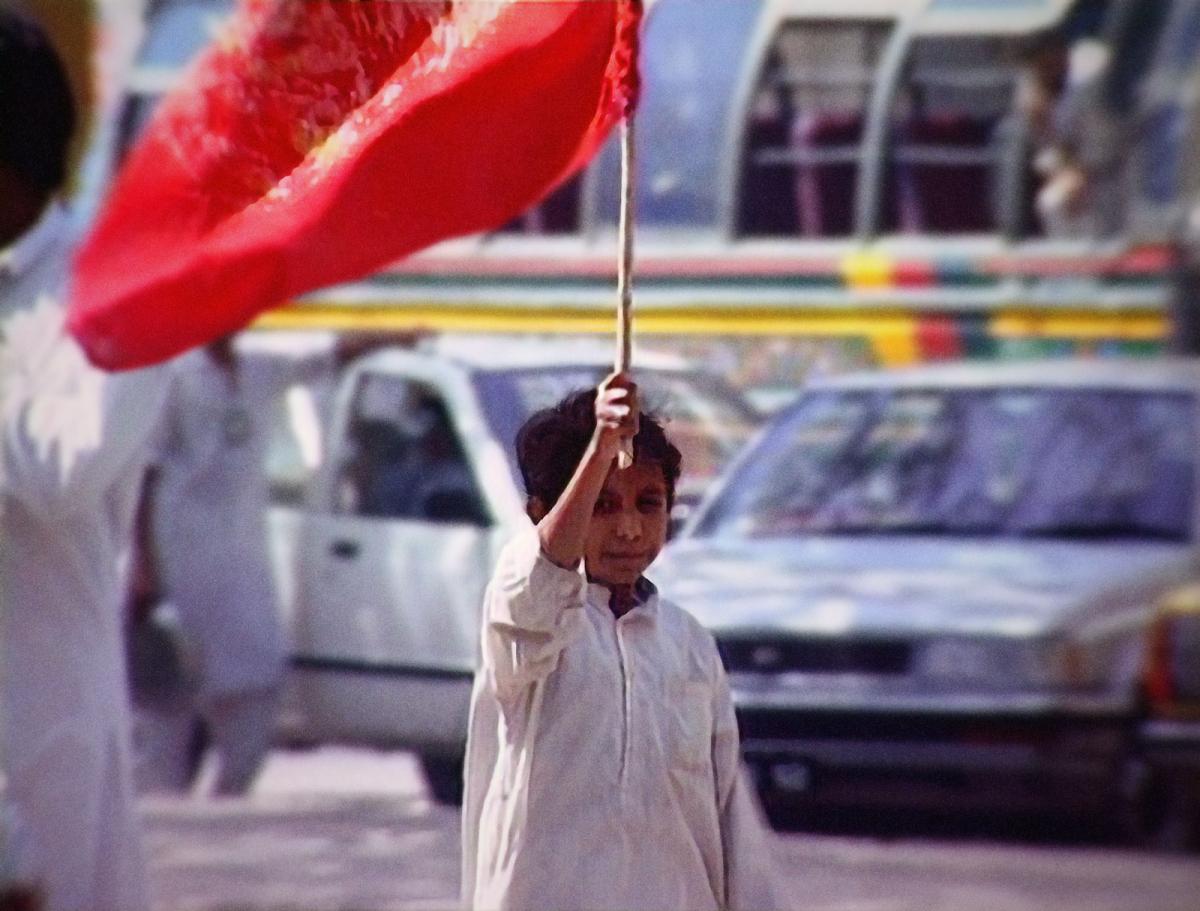
Iqbal is threatened
Iqbal now lives in Lahore with BLLF. The first time he comes home to visit, Ghullah the owner of the carpet factory says: “You have to come back to work. Then the other children will come back too.” But Iqbal refuses. Another carpet maker threatens Iqbal’s mother. He says he’ll kidnap her and Iqbal if Iqbal doesn’t return to work or pay off the debt that made him a debt slave. A third carpet maker says to Iqbal’s little sister Sobia: “Your brother walks about like a judge in the streets when he comes home. But one day we’ll get him.”“Shut up mister,” says Sobia, who has never dared to be rude to an adult before. “Watch out or we’ll kill you too,” replies the carpet factory owner.
Shares message
Iqbal’ story becomes known around the world and in October 1994, he visits Sweden. Iqbal tells school children about how life is for debt slave children in Pakistan. Many newspapers write about him, and he is featured on lots of TV programmes. In December 1994, Iqbal flies to the USA, where he is given an award by the Reebok company for fighting for the rights of debt slave children. Iqbal is also ‘Person of the week’ at one of the USA’s largest TV companies. At home in Pakistan, some people get angry when they see that Iqbal tells his story on TV and in newspapers. It may become more difficult to sell Pakistani rugs abroad if child labor and debt slavery are talked about around the world. And paying decent wages to adult workers instead would mean less profit for carpet manufacturers.Iqbal returns to Pakistan. On the morning of Easter Sunday, 16 April 1995, he takes the bus home to Muridke. That evening he joins his relatives Lyaqat and Faryad Masih, who are taking food to Lyaqat’s father who is watering his fields. All three of them sit on the same bike.
It is eight o’clock and it’s dark. When the boys are halfway there, they hear two gunshot. Iqbal has been shot and killed. Faryad can’t write, so later that night, he has to put his thumbprint at the bottom of a blank piece of paper. Afterwards, the police can write whatever they like above hs thumb print, and claim that Faryad has signed the paper to say that it is true.
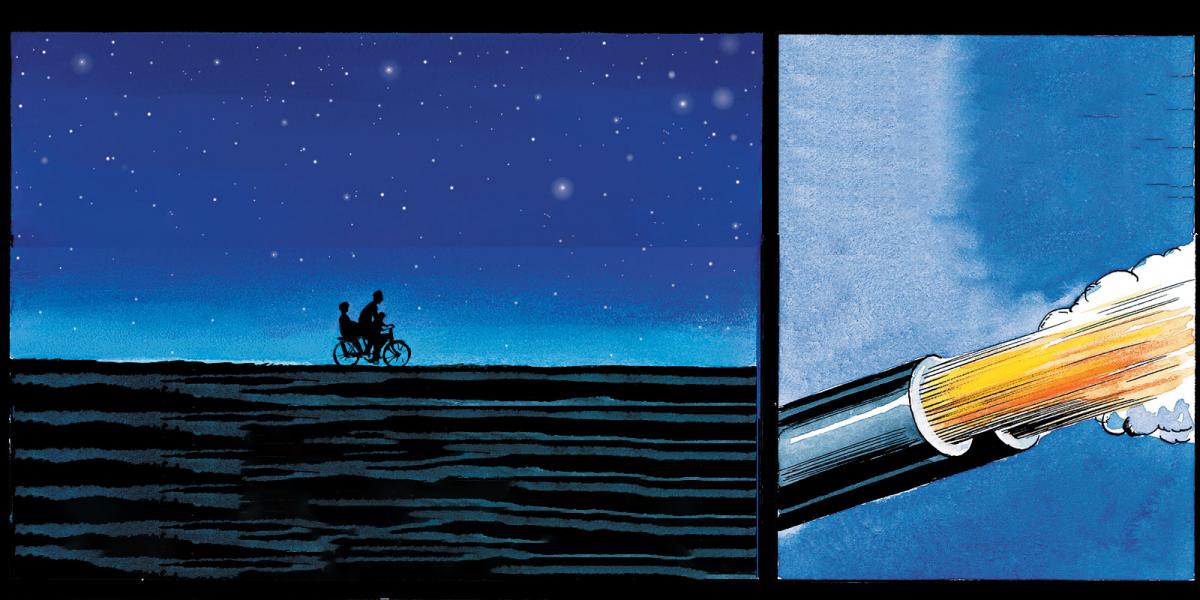
The next morning, a poor farmer called Ashraf Hero is arrested and accused of murdering Iqbal. The police torture him. They hang him upside down from the ceiling and beat him with sticks and leather belts.
“You’re going to say that you killed that boy Iqbal and say whatever we tell you to. Or else we’ll kill you and your whole family. You’re poor and worthless. No one cares what we do with you,” say the police.
The lie spreads
The Human Rights Commission of Pakistan confirms that the police report is correct and that Hero, an innocent man, is the murderer. As a result, the lie is spread all over the world by ambassadors and journalists, without being questioned. The Human Rights Commission also claims, without proof, that the murder is nothing to do with the fact that Iqbal challenged the carpet makers.The farmer, Hero, is kept out of the way. No one is allowed to meet him. But in court he is found not guilty. The police write that Hero, who has never before held a rifle, just happened to hit Iqbal when he fired in the general direction of the boys. In actual fact, Iqbal was hit by 120 pellets on his back, while the other boys were only hit by a total of two pellets. Iqbal was the murderer’s target, and he was shot in the back when he tried to escape.
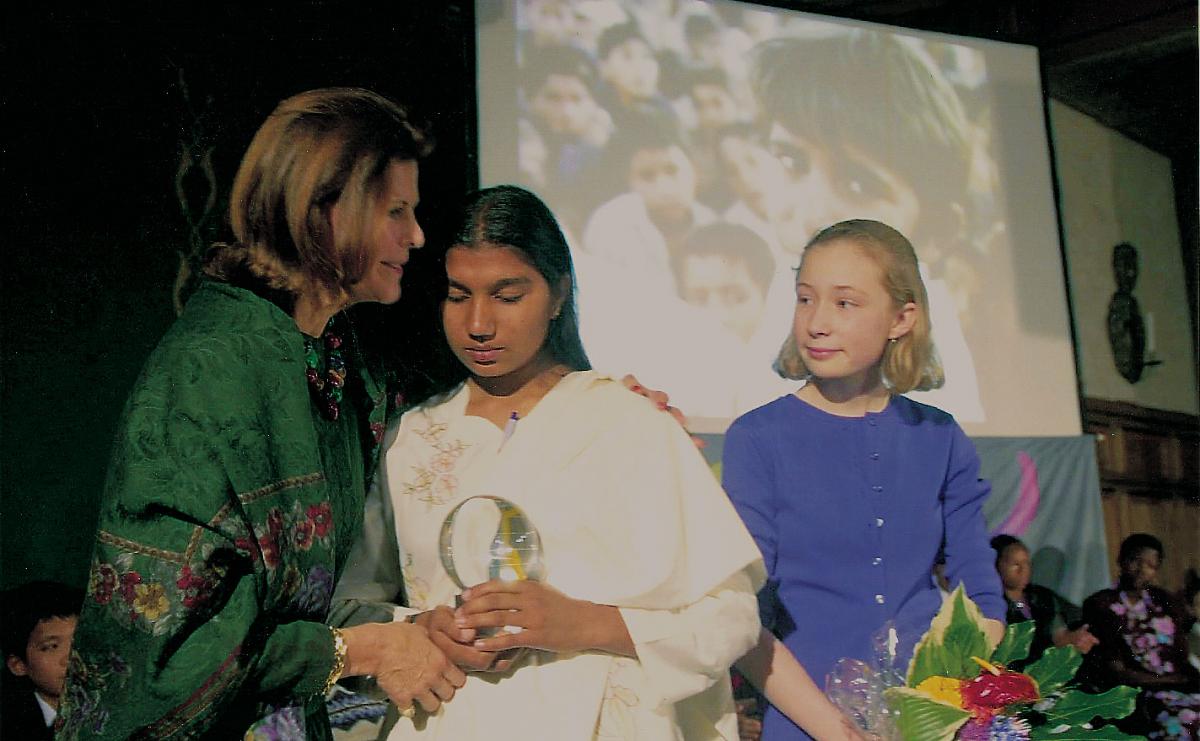
“Iqbal told me that he wanted to be a big lawyer,” recalls Sobia, who was ten when her big brother was murdered. “He wanted to free the children in the carpet factories and give them an education so that poor children could have a better future.”
Text: Magnus Bergmar
Related stories
Långgatan 13, 647 30, Mariefred, Sweden
Phone: +46-159-129 00 • info@worldschildrensprize.org
© 2020 World’s Children’s Prize Foundation. All rights reserved. WORLD'S CHILDREN'S PRIZE®, the Foundation's logo, WORLD'S CHILDREN'S PRIZE FOR THE RIGHTS OF THE CHILD®, WORLD'S CHILDREN'S PARLIAMENT®, WORLD'S CHILDREN'S OMBUDSMAN®, WORLD'S CHILDREN'S PRESS CONFERENCE® and YOU ME EQUAL RIGHTS are service marks of the Foundation.



